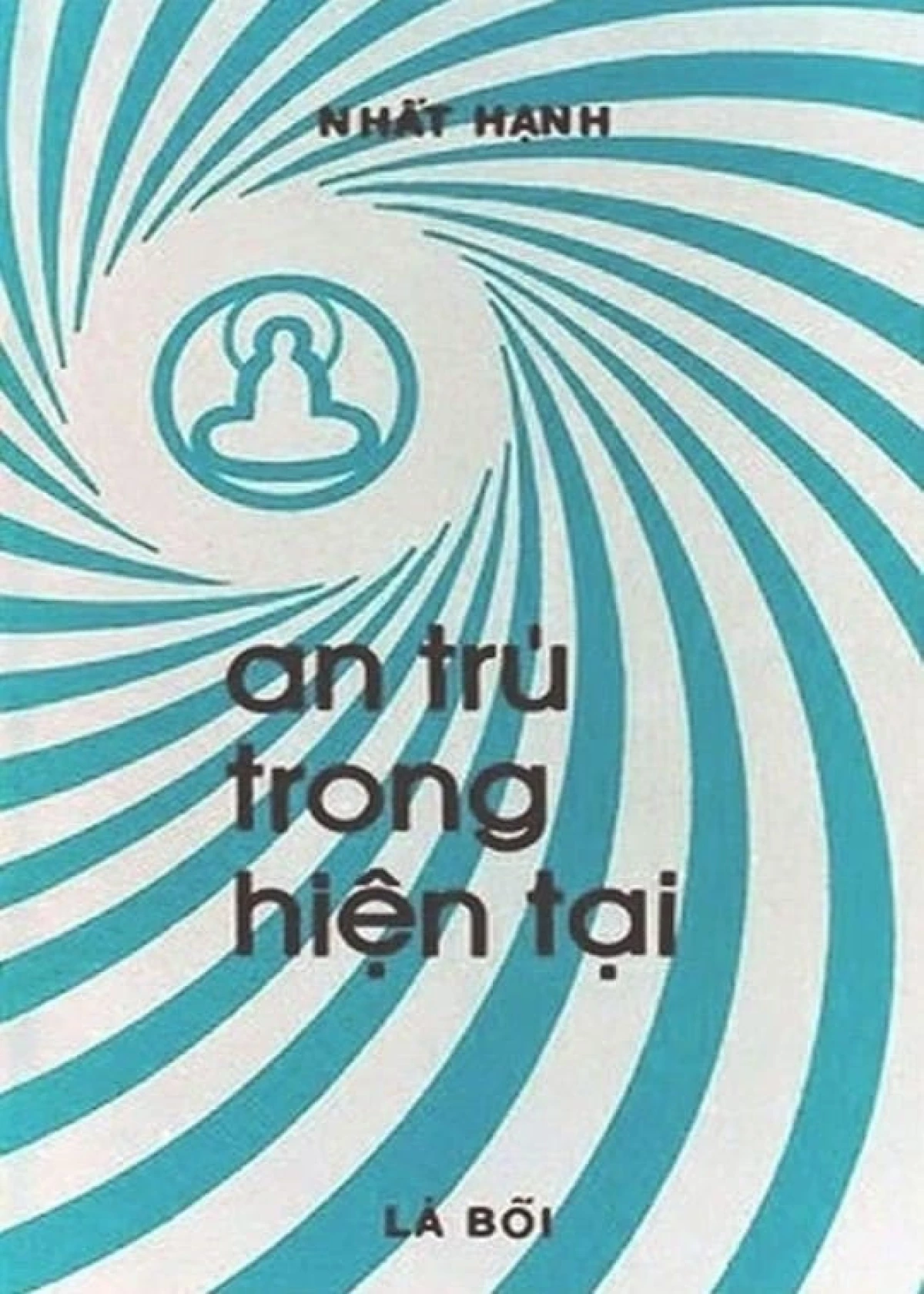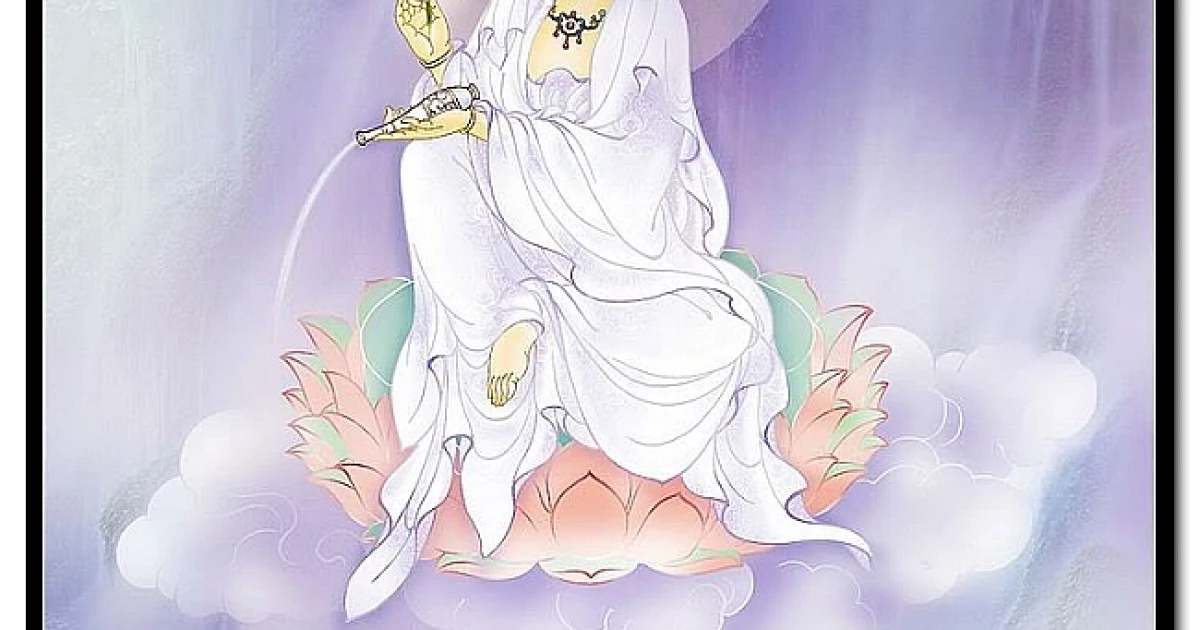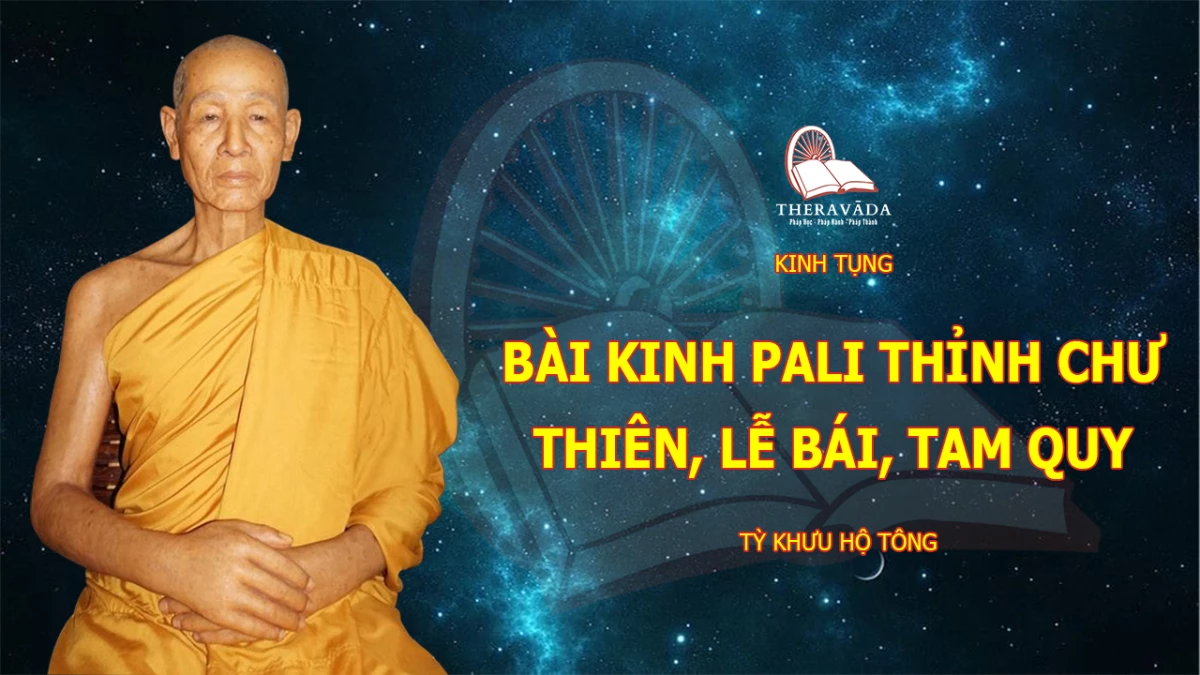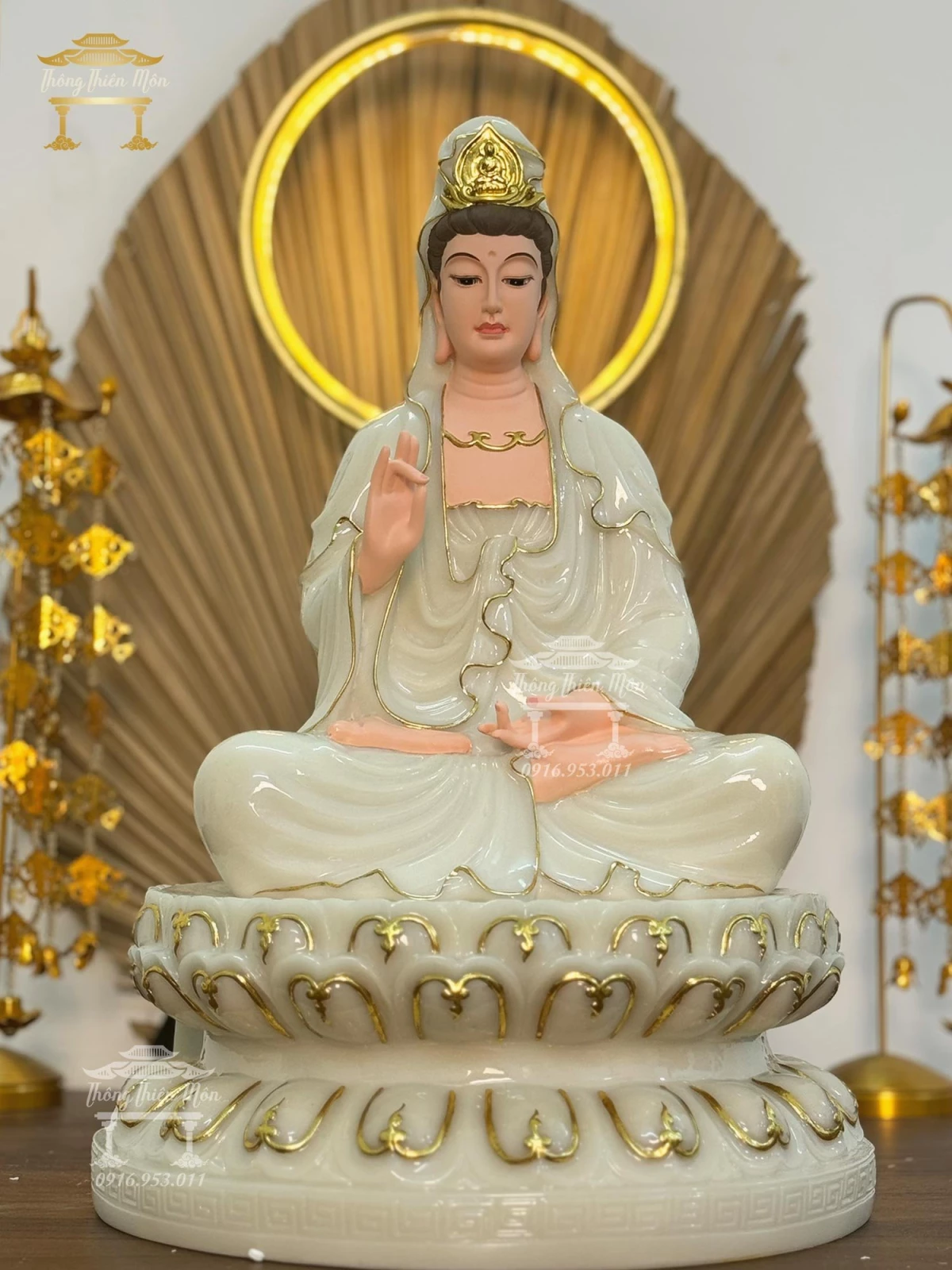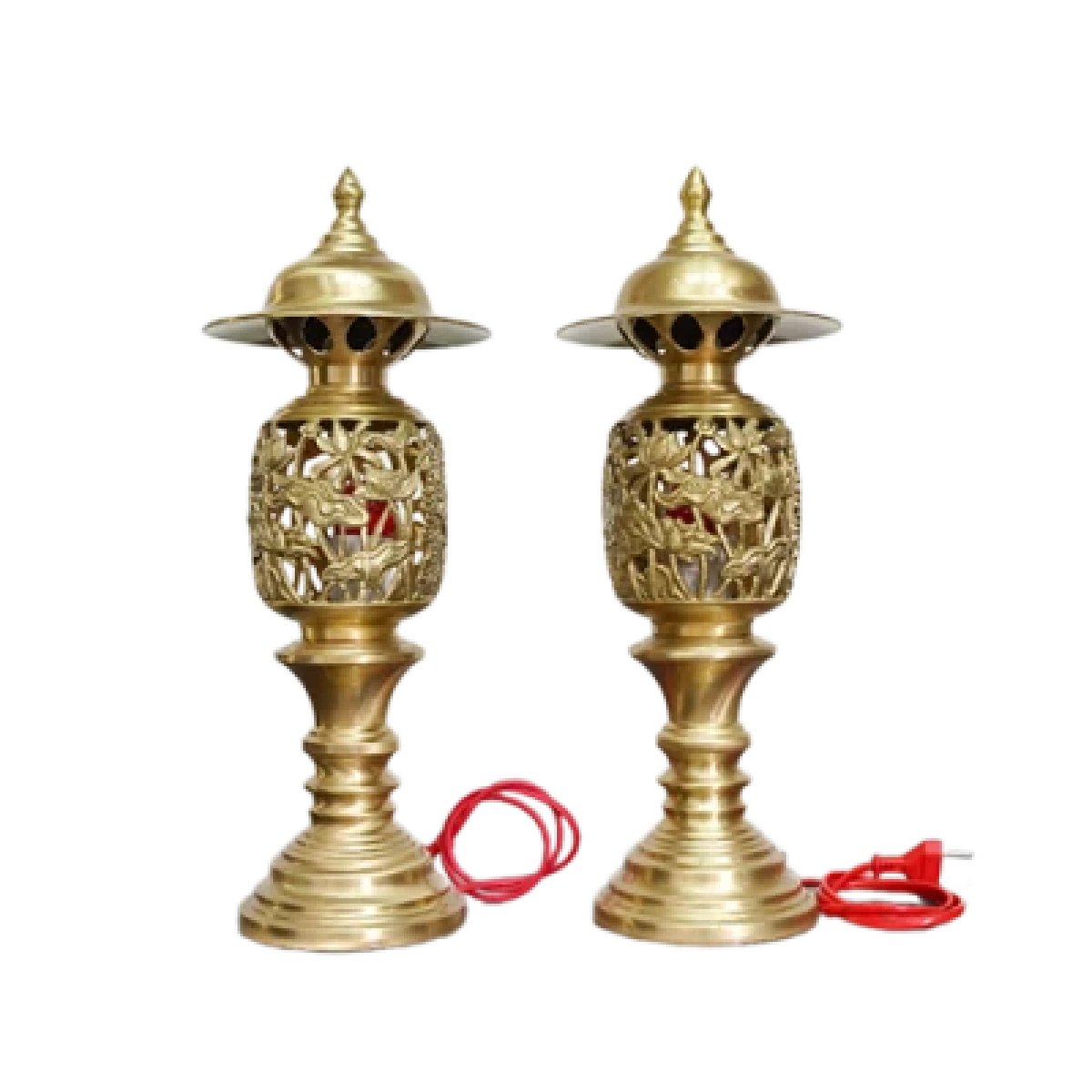Theo đạo Phật, hạnh phúc thế gian và hạnh phúc xuất thế gian là hai thứ hạnh phúc quan trọng. Đức Phật không phủ nhận hạnh phúc thế gian mà cho rằng, việc tìm kiếm và tận hưởng hạnh phúc một cách chính đáng là ý nghĩa sống của một người cư sĩ.
Một gia đình hòa thuận, yêu thương, với đủ điều kiện sống và các mối quan hệ tốt đẹp, hướng thiện và tiến lên là mơ ước của bất kỳ con người nào. Phật gọi đó là hạnh phúc. Trong những yếu tố cơ bản của hạnh phúc, quan hệ hôn nhân và chuẩn mực đạo nghĩa vợ chồng, là một trong những yếu tố quan trọng và nổi bật nhất.
Cơ sở của quan hệ hôn nhân
Hôn nhân là sự tự nguyện đến với nhau do tình yêu thương và sự kết nối giữa hai con người. Thơ thiên tử trong kinh điển đã mô tả tình yêu tuyệt vời, thậm chí là điên rồ, phi thường giữa người chồng và vợ:
"Ôi Suriya Vaccasa Ta đảnh lễ Timbaru Bậc phụ thân của nàng Ðã sanh nàng thiện nữ Nguồn hạnh phúc của ta Như gió cho kẻ mệt Như nước cho kẻ khát Nàng là tình của ta Như pháp với Ứng Cúng Như thuốc cho kẻ bệnh Như đồ ăn kẻ đói Thiên nữ với nước mắt Hãy dập tắt lửa tình! Như voi bị nắng thiêu Tẩm mình hồ nước mát Có cánh sen, nhụy sen Cũng vậy, ta muốn chìm Chìm sâu vào ngực nàng Như voi bị xiềng xích Hất móc câu, gậy nhọn Ta điên vì ngực nàng Hành động ta rối loạn Tâm ta bị nàng trói Di chuyển thật vô phương…
Như người tu sung sướng Chứng Bồ-đề tối thượng Kiều nữ, ta sung sướng Ðược nhập một với nàng Nếu Thiên chủ Sakka Cho ta một ước nguyện Ta ước nguyện được nàng Vì ta quá yêu nàng."
Standing at the threshold of marriage, both men and women hope to "see each other in this life, and also in the next". Due to this desire, the karmic bond between husband and wife is formed, not just for one lifetime, but for countless lifetimes. This can explain why some couples love each other for years before getting married, or why some couples feel a strong connection after just a brief encounter. In modern terms, the second type of love is often referred to as "love at first sight".
Similarly, the scriptures state that "Women look at men very carefully, and men look at women very carefully. Because they look at each other so carefully, desire and love for the bodies arise." This shows that the connection and attraction between individuals, which we call marriage, is governed by karma. In simple terms, all thoughts, intentions, words, and actions can be considered as karma. According to Buddhism, karma is not fixed, as individuals can change or improve it through their own efforts.
Although coming together is due to karmic fate, individuals have complete control over building a happy relationship based on common standards, or they have the freedom to terminate the marriage if it does not bring happiness to both parties. As the scriptures state, human beings are "the masters of karma".
The foundation of a lasting marriage
The outcome of a marriage should be the fruits of happiness. To maintain happiness, a marital relationship must be stable and enduring. According to Buddhism, for a marriage to last, there must be some similarity in various aspects between the two individuals, as well as the fulfillment of roles and responsibilities by each party involved.
1. Similarity between individuals
Similarity refers to sameness. According to the Tăng chi scripture, to have a lasting marriage, there must be at least four types of similarity. Similarity in perception, similarity in beliefs, similarity in ethical standards, and similarity in compassion.
The first type is similarity in perception. Perception here refers to the basic knowledge in normal life. It could be knowledge about interpersonal relationships, specific cultural practices, or understanding of each other's experiences and behavior. Thorough understanding of each other can prevent misunderstandings and conflicts within the family. An ideal couple should have a deep understanding of each other, be willing to share, and constantly seek knowledge and life experiences to enhance their relationship, as it is a necessary condition for happiness. The message that Buddhism wants to convey to couples in love is that understanding each other deeply will lead to a lasting and strong love.
The second type is similarity in beliefs. Belief here specifically refers to religious beliefs. Sharing the same faith is an ideal condition for a couple. With the same religious belief, both parties can easily connect with each other, understand each other, and reach a consensus on related values such as moral principles, lifestyle beliefs, inner tendencies, and even ways to prosper. Although Buddhism has liberal views on interfaith marriages, in general, the best condition for a lasting marriage is having the same religious belief. Having the same belief also means affirming and deeply trusting the three jewels, as well as the experiential values in Buddhism.
The third type is similarity in ethical standards. Ethics here refers to principles of living, which are the standards that individuals voluntarily adhere to. According to Buddhism, there are five basic ethical standards that support practical life and spiritual development for lay practitioners. These five standards can be understood as: not harming others and minimizing harm to living beings; not being greedy or stealing; having only one spouse; not lying; and not excessively using addictive substances such as alcohol and drugs. If these ethical standards are fully implemented, they not only protect the marital relationship but also protect oneself, others, and society. Thus, similarity in these ethical standards is one of the important factors in building a lasting marital relationship.
The fourth and final type is similarity in compassion and kindness. In Buddhist terms, it is known as benevolence and altruism. Regarding the management and use of wealth, Buddhism teaches practitioners to skillfully use their possessions to bring happiness to themselves, their families, and others. This includes helping parents, spouses, servants, laborers, and close friends; as well as making offerings to deceased ancestors, kings, and celestial beings. In reality, some husbands or wives are overly possessive in their use of wealth, even if it's for legitimate reasons for themselves, their families, or those they care about. This is one of the dangers that can cause disturbances and difficulties in the practical life of a family. A truly happy family is when both husband and wife are generous and do not hesitate when it comes to necessary expenses or acts of kindness. As the scriptures state, "Repair your relationships and accumulate merits for the next life. Perform deeds for others and make contributions to society." In the present relationship, a generous spirit is always loved by everyone; in deep karmic relationships, helping those in need or making offerings to honorable figures will bring great merits to the couple.
2. Duties of a couple
Achieving happiness in a shared life is both a deep and gentle art. This art begins with clear discernment and the complete fulfillment of responsibilities by each party involved.
For husbands, the main responsibility is building wealth to support the family. According to the teachings of Buddhism, an ideal husband should be "proficient in various crafts", meaning that he should be able to take on any occupation as long as it helps build wealth to bring happiness to himself, his parents, his wife and children, those who serve and work for him, and his friends and relatives. In modern times, due to societal changes and development, this responsibility has become lighter as wives also make their own efforts to contribute to the family's economy. Nevertheless, the fundamental duty of building wealth to support the family still holds significance in today's society. If both husband and wife share the economic burdens, it signifies the harmony and fulfillment of a family.
Sharing the responsibility of raising, educating, and protecting children is another important duty. According to ordinary perception, raising and educating children is primarily the responsibility of women. However, sharing the responsibility in raising and educating children demonstrates the maturity of a man. Even the Buddha himself, although he ordained with the consent of Queen Xá Lợi Phất in his pursuit of spiritual practice, whenever possible, he would teach and protect Prince La Hầu La in the broadest sense. Once, when according to monastic rules, Prince La Hầu La had to give up his place for senior monks and had to stay temporarily in the restroom. When he heard the news, the Buddha went to the location and temporarily let Prince La Hầu La stay in the same room with him. This incident shows the Buddha's emphasis and concern for protecting children. A true father will do difficult things for his child, and that is how they share the responsibility of protecting and raising their children.
Among the eight causes of family breakdown taught by Buddhism in the "Tương ưng" scripture, the closest and most direct cause is "the one who destroys the family in the family, who scatters, destroys, and harms." Although the scripture does not explicitly state who that person is, based on the context, we can understand that it refers to the husband. An ideal husband needs to behave with dignity and protect himself, his family, and his possessions. A responsible person towards oneself will naturally be responsible towards his family and community.
In terms of self-protection and protection of possessions, a man must stay away from bad habits that can be influenced, such as "indulging in debauchery, alcohol addiction, outdated street life, gambling, socializing with evil people, and being lazy." These are just six of the 36 basic bad habits that a man may encounter in life.
From the reality, most family disturbances originate from these bad habits, mostly initiated by men. Based on personal research, the cause of rifts in families is often related to the appearance of a third party, which is why the ethical standard of "one spouse" plays an important role.
Moreover, life is inherently unpredictable and becomes more uncertain if one becomes dependent on or influenced by alcohol and other substances. Being intoxicated or intoxicated is not considered an optimal way of existence in modern times. A man who falls into any of these bad habits risks losing control of his family's happiness, allowing it to slip away.
Another duty that upholds the flame of marital happiness is for the husband to respect and affectionately indulge his loved one. Respecting and indulging one's wife may seem commonplace in today's society, but in ancient times, it was a revolutionary concept. In the ancient Indian society, women had a humble position. "Respecting the wife, not being disrespectful to the wife" is a positive affirmation in the scriptures.
Here, not being disrespectful to the wife also means respecting everyone connected to the wife, such as her parents or external relatives. It also means buying the wife the necessities and items she desires. Since, in normal circumstances, after getting married, due to the realities of life, the romantic love between the couple may erode over time if they don't know how to nurture their affection. The relationship can become dull and wither. Surprising the beloved wife with timely and appropriate gifts is an unexpected source of happiness. Buying jewelry for a wife is truly a standard for a sophisticated husband, and the value of this standard goes beyond time.
To be continued...
Image Credit


